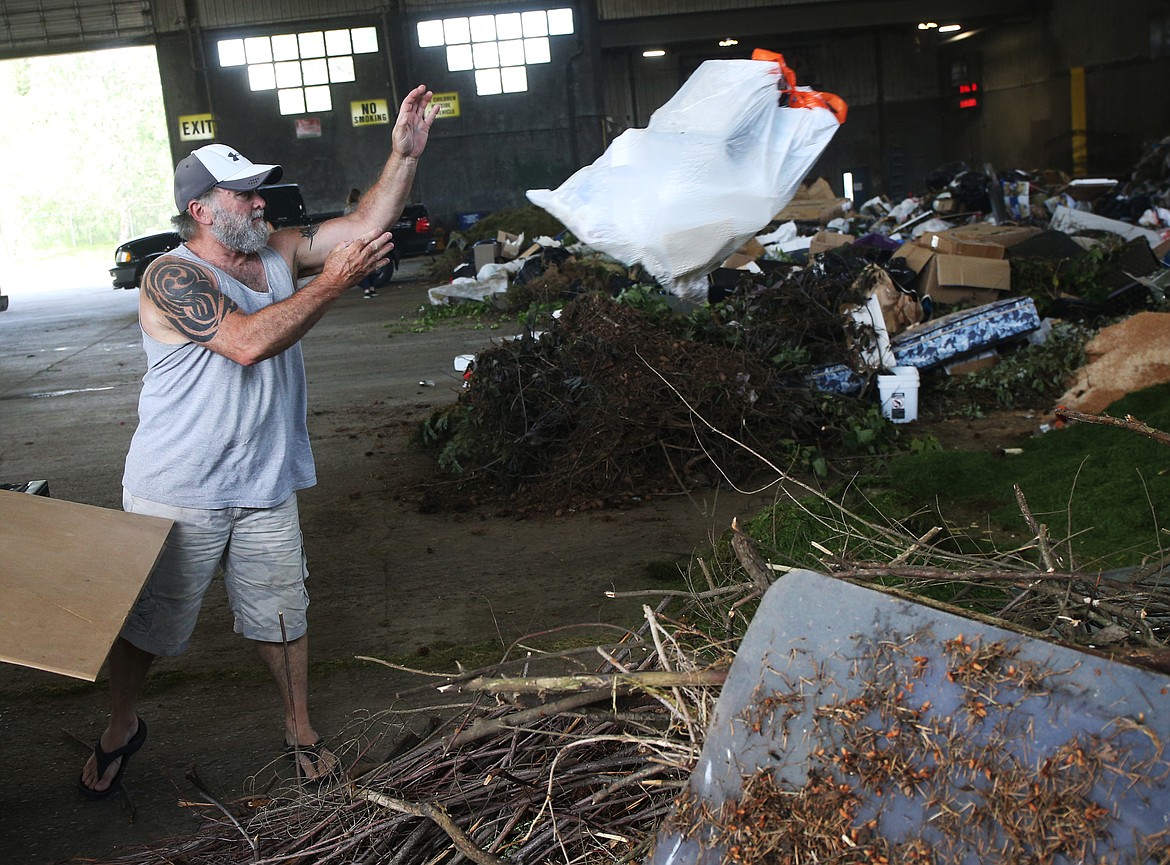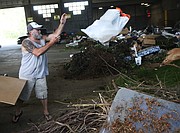Privatize garbage? County wonders
COEUR d'ALENE — The Kootenai County Commission chairman is following through with his idea during the election campaign to see if privatizing the Solid Waste Department would save taxpayers money.
Other officials, however, fear that could lead to a monopoly that would ruin a well-run service delivered at a reasonable cost.
"It is possible that private industry can operate the transfer stations and the landfill while still providing the same services we now receive at less cost to the taxpayers," Chairman Marc Eberlein said. "Most county residents would prefer the annual property tax statement be less rather than more. The fee for solid waste is part of that same tax bill."
Residential property owners in Kootenai County are assessed an annual solid waste fee of $93. It allows residents to dispose up to a ton of solid waste at no additional charge for each transfer station visit. That $93 a year equates to 25 cents a day.
Cathy Mayer, the county's Solid Waste director who has worked in the industry for 27 years, called privatization of the department a "very bad idea."
"We have a very financially stable program that totally pays for itself as well as construction projects," Mayer said, adding that the system, which includes two transfer stations, 13 rural residential collection sites and a landfill at Fighting Creek, is fully funded by fees.
Idaho law requires the county to provide its residents access to solid waste disposal. Mayer said the county provides such services fairly and reasonably.
"The recent opinion to privatize solid waste to lease out the transfer stations to one contractor with the same contractor providing all waste collection curbside would create a monopoly on services that would impact the overall efficiencies of the Solid Waste Department," Mayer said.
Eberlein said during his re-election bid, in which he was defeated by Bill Brooks in the primary last month, and again at a recent meeting that he received preliminary estimates that the county could save up to $1 million in personnel costs and $2 million in operating costs if the switch was made.
Commissioner Chris Fillios, who said he doesn't believe the privatization idea will fly, said he and Commissioner Bob Bingham asked Eberlein to seek a detailed analysis of the idea for the full board to consider.
"There's a concern that the savings might not be realized and no guarantee that the fees to residents won't actually rise," Fillios said.
Hiring a consultant to perform the analysis has not been considered by the commission, Fillios said.
The county's solid waste program is already a public-private partnership with the county performing core operations and contracting. Private businesses are used for maintenance, engineering, hauling and environmental services.
Other county departments also tap private businesses for duties such as plan reviews.
Mayer said Solid Waste, as a governmental department, receives discounts that a private company would not receive. She said private companies have been known to offer attractive deals for services initially and, once a customer is committed, increase their prices dramatically.
Mayer said Solid Waste also contributes about $1 million annually to the county's General Fund to support other departments.
Jamila Holmes, the county's civil deputy prosecuting attorney, said the county has a long-term liability with landfill even after it is closed. She said it would be unlikely for the county to find a private entity to take over Solid Waste's responsibilities and be willing to indemnify the county for that ongoing liability.
Deputy Finance Director Keith Taylor encouraged commissioners to keep track of revenues if an outside operator takes over the service. Eberlein, however, said he would not be in favor of the operator taking over revenue collection.
Eberlein said he believes the department is well-run and offers innovative programs, but he also believes at least exploring privatization is a financially prudent step if it doesn't reduce the level of service.
"If we can have someone run this for $2 million less in operating costs, should I ignore that?" he said.





